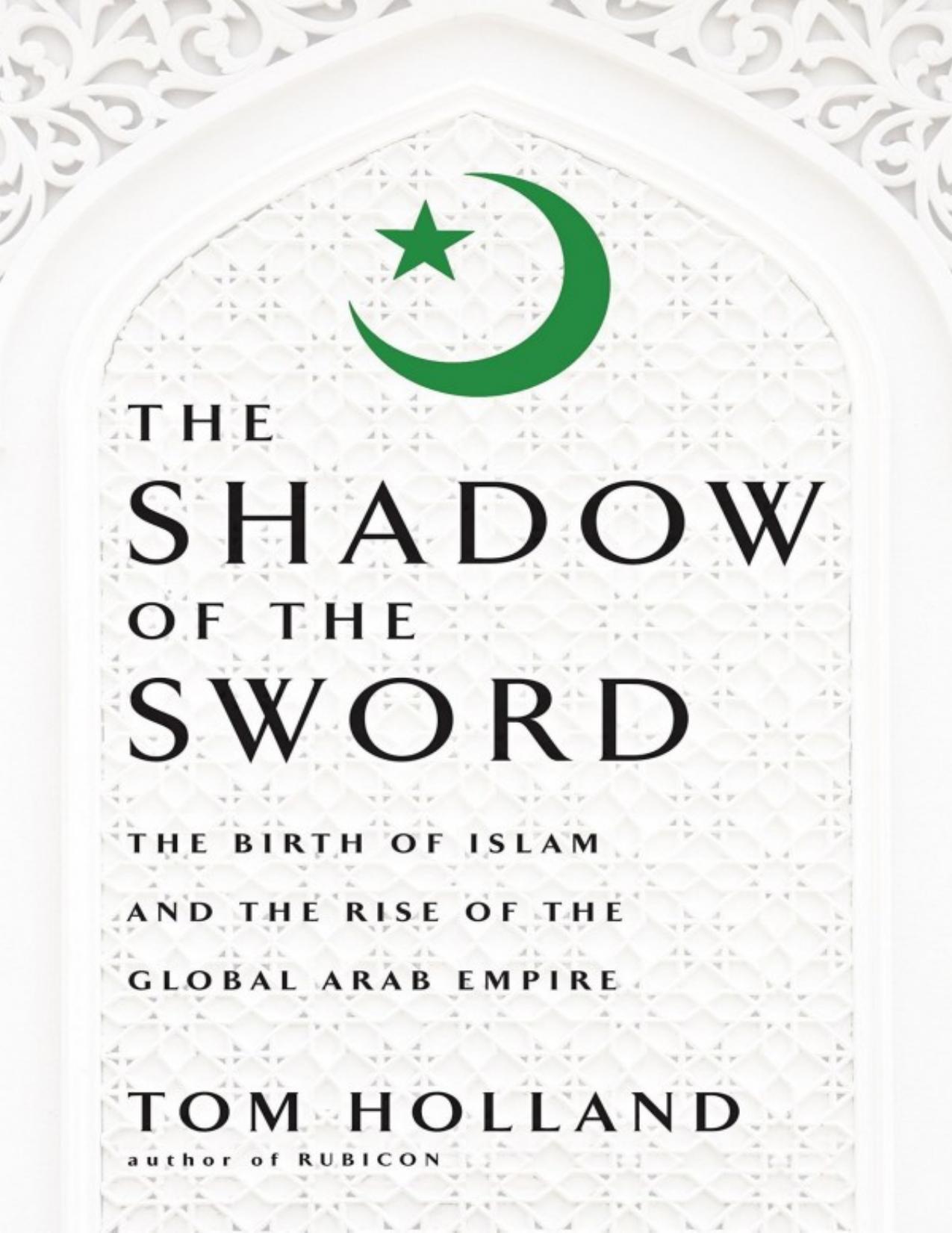In the Shadow of the Sword: The Birth of Islam and the Rise of the Global Arab Empire by Tom Holland

Author:Tom Holland
Language: eng
Format: mobi, epub, pdf
Tags: Social Science, Islamic Studies, General, Religion, Middle East, History, Islam
ISBN: 9780385531368
Publisher: Doubleday
Published: 2012-05-15T07:00:00+00:00
The Great War
Around Easter, AD 600, the plague returned to Galilee. So virulently did the outbreak rage that it had soon spread beyond the Golan Heights and into the wilderness of scrub and sand that bordered Palestine. Prominent among the frontier settlements devastated by its coming was Jabiya, the great tent city of the Ghassanids. There, the horror of the pestilence would long be remembered. “Like whirlwinds,” wrote one of their poets, “it left the smoke of its blazing passage.”61
Arabs who lived beyond the frontiers of the empire had previously been spared the worst of the plague. Infection stalked the desert less readily than it did streets or fields. More than half a century had passed since the first appearance of the pestilence, and still the Arabs took for granted that it was a disease of “the land of the Romans.”62 To the Ghassanids, and to the Lakhmids as well, the culling of peoples along the entire sweep of the Fertile Crescent had spelled considerable opportunity: for the exhaustion and impoverishment of both their respective sponsors had inevitably resulted in a certain loosening of leashes. Back in the 540s, for instance, at the height of the devastation wrought by the pestilence, Arethas and Mundhir had been free to escalate their vendetta “without reference to either the Romans or the Persians.”63 Superpower patronage, amid the swirl of their own venomous hatred, became almost an irrelevance. The two sides increasingly battled in the names of heavenly, rather than earthly, sponsors. Mundhir, following his capture of one of Arethas’s sons, did not hesitate to top his earlier sacrifice of four hundred virgins to al-’Uzza by offering up the Ghassanid prince to the goddess al-’Uzza. Other Christian captives, so it was claimed, were tortured by the Lakhmid king until they agreed to join in her worship. News of these atrocities, brought to Saint Simeon on his pillar, so appalled the stylite that he promptly lent his prayers to the Ghassanids. Sure enough, in 554, Arethas had been graced with a stunning and climactic triumph. In a great battle fought at Chalcis, in Syria, a Lakhmid invasion force was annihilated. Simeon, borne from his pillar by the agency of the heavens to a hill overlooking the action, made his own personal contribution to the victory by asking the Holy Spirit to strike down Mundhir with a fireball—a request which the Holy Spirit obligingly met. Arethas hailed the Ghassanid dead, among them his own eldest son, not merely as heroes but as martyrs in the cause of Christ.
Here, in this notion—that killing might be done as a service to the heavens as well as to secure plunder—was an intoxicating new possibility for the Arabs to contemplate. To the Ghassanids, in particular, it had fast become something more: the irreducible core of their identity. By 600, there could be no doubting their commitment to the image they had of themselves: as the shields of a Christian empire. Not even a host of insults from the increasingly twitchy
Download
In the Shadow of the Sword: The Birth of Islam and the Rise of the Global Arab Empire by Tom Holland.epub
In the Shadow of the Sword: The Birth of Islam and the Rise of the Global Arab Empire by Tom Holland.pdf
This site does not store any files on its server. We only index and link to content provided by other sites. Please contact the content providers to delete copyright contents if any and email us, we'll remove relevant links or contents immediately.
| Buddhism | Christianity |
| Ethnic & Tribal | General |
| Hinduism | Islam |
| Judaism | New Age, Mythology & Occult |
| Religion, Politics & State |
Cecilia; Or, Memoirs of an Heiress — Volume 1 by Fanny Burney(31341)
Cecilia; Or, Memoirs of an Heiress — Volume 3 by Fanny Burney(30938)
Cecilia; Or, Memoirs of an Heiress — Volume 2 by Fanny Burney(30894)
The Secret History by Donna Tartt(16643)
Sapiens: A Brief History of Humankind by Yuval Noah Harari(13067)
Leonardo da Vinci by Walter Isaacson(11912)
The Radium Girls by Kate Moore(10914)
Sapiens by Yuval Noah Harari(4546)
The Wind in My Hair by Masih Alinejad(4427)
How Democracies Die by Steven Levitsky & Daniel Ziblatt(4407)
Homo Deus: A Brief History of Tomorrow by Yuval Noah Harari(4287)
Endurance: Shackleton's Incredible Voyage by Alfred Lansing(3852)
The Silk Roads by Peter Frankopan(3769)
Man's Search for Meaning by Viktor Frankl(3644)
Millionaire: The Philanderer, Gambler, and Duelist Who Invented Modern Finance by Janet Gleeson(3574)
The Rape of Nanking by Iris Chang(3522)
Hitler in Los Angeles by Steven J. Ross(3443)
The Motorcycle Diaries by Ernesto Che Guevara(3340)
Joan of Arc by Mary Gordon(3262)
